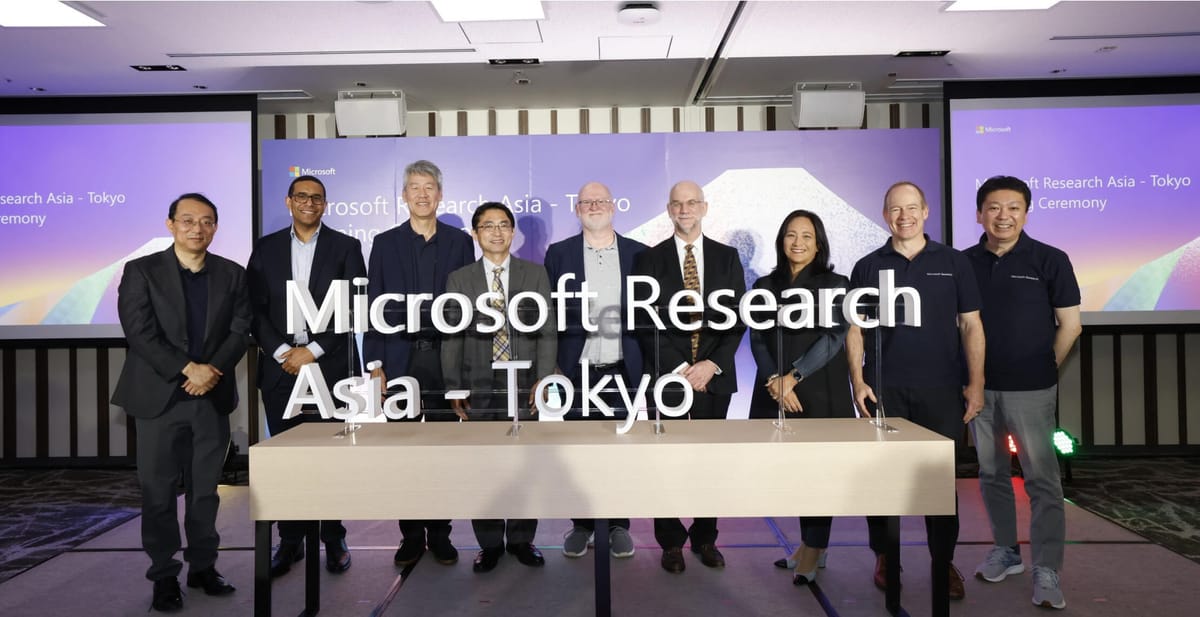
Microsoft has opened its first research and development center in Japan, named Microsoft Research Asia Tokyo. This new lab will integrate AI with robotics, advancing research in key areas like manufacturing, healthcare, and societal applications. It's Microsoft's latest step in expanding its global network of AI research centers.
Why it matters: Japan is a global leader in robotics and engineering, and Microsoft's new Tokyo lab aims to leverage that innovation legacy. Just last week, Japanese Prime Minister Shigeru Ishiba announced a $65 billion pledge to invest in the country's semiconductor and AI sectors over the next decade. Additionally, NVIDIA and SoftBank announced their partnership to build Japan's AI grid, marking a significant step towards establishing sovereign AI infrastructure. This series of initiatives represents Japan's broader strategy to boost its AI capabilities and secure a prominent place in the global tech landscape.
Big picture: Microsoft is doubling down on AI's real-world impact by establishing specialized labs like this. The Tokyo lab is set to work on four primary research domains:
- Embodied AI: Developing intelligent systems capable of interacting with physical environments.
- Societal AI: Exploring how AI can be designed to serve humanity's best interests.
- Well-being and neuroscience: Using neuroscience to rethink human-AI interactions and applying AI to enhance overall well-being.
- Industry innovation: Fostering interdisciplinary collaborations to transform industries.
What they're saying: Microsoft's Chief Technology Officer Kevin Scott underscored the lab's significance, stating, "The establishment of Microsoft Research Asia Tokyo represents a significant milestone in our commitment to advancing frontier research and innovation in AI." He added that Japan's rich tradition of engineering makes it an ideal location for this endeavor.
Yasuyuki Matsushita, head of the Tokyo lab, highlighted the collaboration with Japanese academia and industry. "Tokyo is a hub of technological innovation. Our lab will tap into the talent pool and diverse perspectives here, bringing together the brightest minds to drive innovative solutions," Matsushita said.
Between the lines: The lab's mission isn't just about advancing technology; it's also about talent development. Microsoft Research Asia Tokyo plans to run joint research initiatives, offer internships, and host visiting scholars. "We’re looking for curious, self-driven individuals who are passionate about solving societal issues," Matsushita added, signaling the lab's role in nurturing future AI talent.
Zoom out: This Tokyo-based expansion comes as part of Microsoft Research's ongoing global growth strategy. With prior efforts like the Mt. Fuji program and partnerships with Japanese universities, the company has a long-standing relationship with Japan's research community. The Tokyo lab aims to deepen these ties, driving forward cross-cultural exchanges and industry collaborations that enhance technological innovation.
Looking ahead: Microsoft's move strengthens the Asia-Pacific region's role in global AI development, positioning Japan as a key player in embodied and societal AI. Microsoft Japan's President, Miki Tsusaka, expressed optimism that the lab will contribute significantly to addressing Japan’s societal challenges while bolstering the national economy through technological advancement.

